The rise and fall of Conor McGregor – how a lovable rogue became everything he promised he wouldn’t
'Suggesting McGregor is a working-class hero is an insult to the working class'
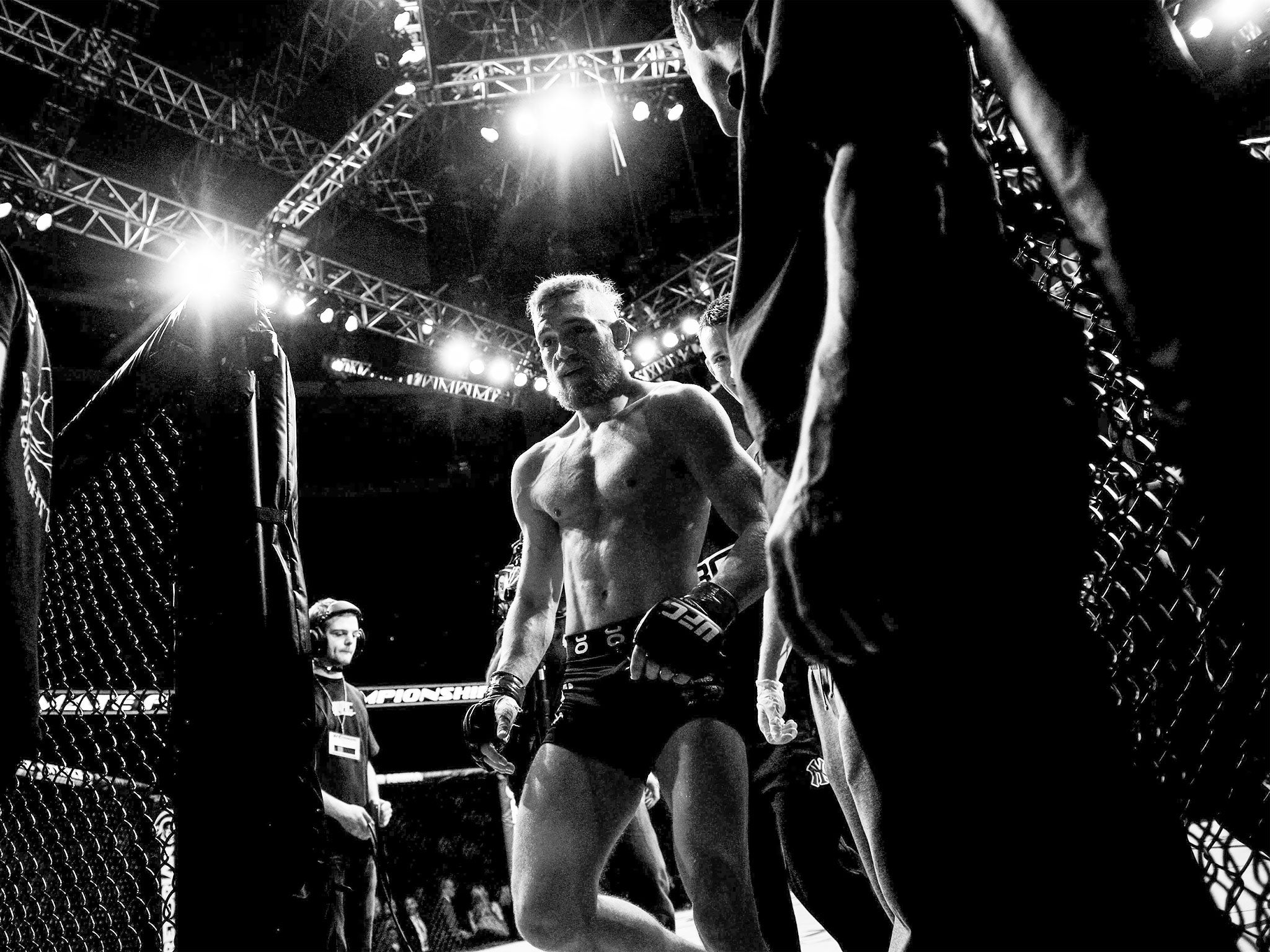
The last few efforts on Conor McGregor's Twitter are enough to give a tell-tale insight into his modern-day mindset. “Driving home in this heat and in this nick and in this motor and in this bread and in this f*****g life I am so blessed,” he writes beside a picture of himself topless while driving a convertible. “Long rangy dangerous motherf****r,” he writes still without a shirt but now on the bonnet of the car. “Full of Irish horse power I am going to run you over,” he writes having made it back inside.
The shallower the brook, the more it babbles.
It didn't have to be like this though. In fact there was a time not so long ago when it wasn't like this. “McDonald's on the Long Mile Road,” said an accommodating McGregor when asked where best to meet for an interview in early 2013. The avenue itself on the outskirts of Dublin was close to the gym where he trained, a bunker in the corner of an industrial estate that reminds us that the fight game is always about substance rather than style. As for the restaurant, that summed him up in a wonderful way.
Having seen himself as a nobody with nothing, he liked to go there to treat himself to a coffee on a break from working out his body and also the demons in his head. Though he had a month earlier won €60,000 for his first UFC victory that garnered him knockout of the night, he was remaining true to himself. One win down with a sizable impression made, and still that likable rogue with a glint in his eye and a glow from his skin as he headed into a very different unknown, this time with excitement rather than fear.
Then he talked. And talked. And it was fascinating and fresh. Freestyle wrestling. Thai boxing. Even his first flirtation with capoeira - the Brazilian fight dance, he explained, that originated with African slaves who didn’t want their masters to know they were training so they disguised it as rhythmic movement. It was hard not to be drawn into how he broke down a game that many see as barbaric, making it sound like chess as he studied anything and everything to improve himself and his chances.

He smiled at his past, probably because it was just that. Laughed at his present. Glistened at his future. “People in Ireland, all over the world, have that negative mindset. They focus on what if something bad happens. That’s not the way to live. Think what happens when it goes right. Why worry, it’ll only bring more worry? When you focus on the positive, negative shrinks away. What you think about, it’ll happen.” It continued on in that infectious way.
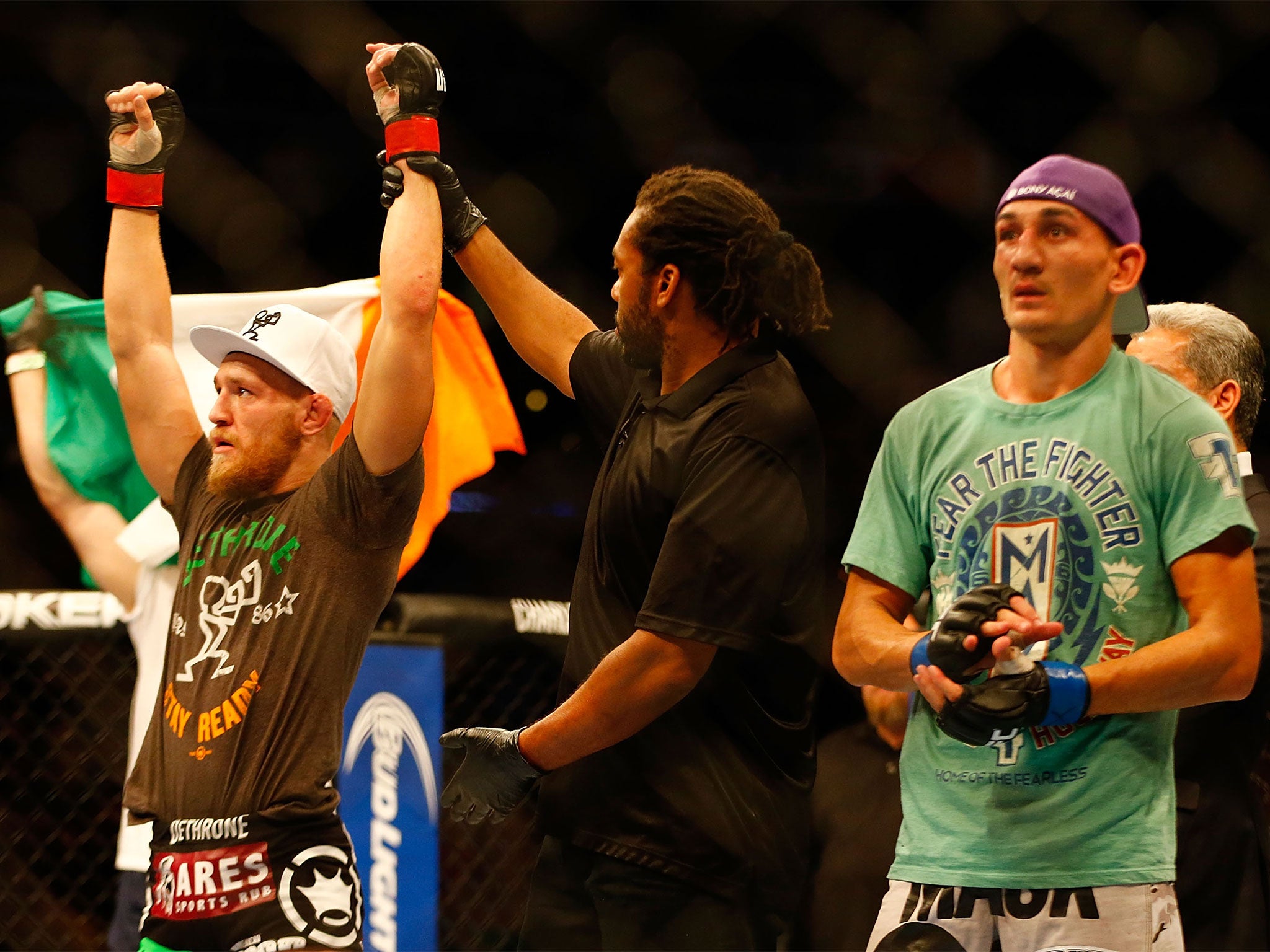
Ultimately that day he promised himself that no matter what came bolting around the corner, it would never change him and, not fancying the walk back up the Long Mile Road, he grabbed his beat-up phone and asked his girlfriend for a lift home in her banged-up Peugeot and all you wanted to do was root for him as this was what sport was supposed to be about.
Now though? There's a line from House of Cards that comes to mind every time you see the desperation to portray himself as something he said he never would be. “Money is the McMansion in Sarasota that starts falling apart after 10 years,” noted Frank Underwood coldly. “Power is the old stone building that stands for centuries. I cannot respect someone who doesn't see the difference.”
They hurt you at home and they hit you at school,
They hate you if you're clever and they despise a fool,
Till you're so f***ing crazy you can't follow their rules,
A working class hero is something to be.
***
You'd never have guessed it with hindsight, but what does that impostor know anyway.
The morning came when Conor McGregor emptied the books from his schoolbag, took the ends off a barbell, and left the metal shaft visible out the top so those he hated would know he was serious. In Crumlin, an occasionally tough but ultimately decent part of Dublin, he'd taken a beating over a girl, was jumped by 10 guys and, as he put it when we met, “I could give you another 50 stories of walking down the street and someone trying to start a fight. I don’t know what it was, I was a quiet child. I know it sounds stupid, we were kids, but at the time you were petrified and it played a part in the path I chose”.
That path seemed a cul-de-sac more often than not, even after he got away from the classroom. He hated the 15-hour days as a plumber's apprentice too but was gutsy enough to realise he'd be happier without the money as that wasn't what life was truly about. His father wasn't having it though, particularly his fascination with fighting, so he tried to use his old man's own passions against him. Loving war documentaries, Conor said that he got a little of that from him, only his love was unarmed combat rather than the armed variety. It didn't work. Still, he was relentless. He boxed badly - as discussed at length here - so MMA offered up an alternative route with a very different skill-set.
Enjoy 185+ fights a year on DAZN, the Global Home of Boxing
Never miss a fight from top promoters. Watch on your devices anywhere, anytime.
ADVERTISEMENT. If you sign up to this service we will earn commission. This revenue helps to fund journalism across The Independent.
Enjoy 185+ fights a year on DAZN, the Global Home of Boxing
Never miss a fight from top promoters. Watch on your devices anywhere, anytime.
ADVERTISEMENT. If you sign up to this service we will earn commission. This revenue helps to fund journalism across The Independent.
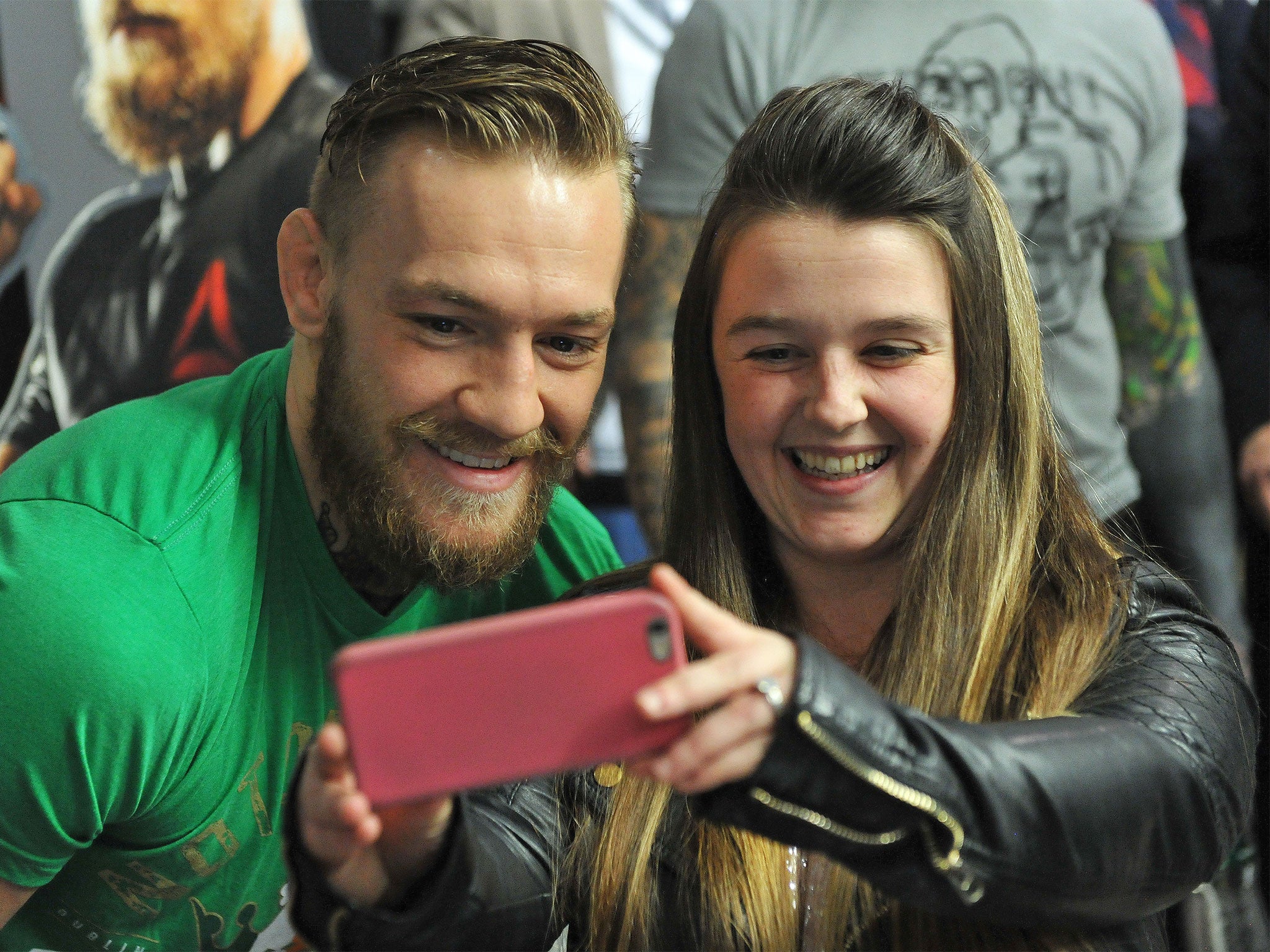
Sometimes you can't escape that shadow that looms because of where you're from, but if that doesn't break you it might make you. His first fight was in a dingy hall and he showed up a mere 20 minutes before which wasn't time enough for a medical so his bout was shifted. “I was barefoot, tiny gloves that barely covered the knuckles, bare shin, no head guard. I was in a pair of surf-dude shorts that a friend had left in my suitcase after a holiday,” he recalled. Soon after came another show and it's the reason his trainer John Kavanagh has him saved in his phone merely as Trouble.
Selling tickets for the fight night, people were handing him €30 in cash and after six weeks of pushing them he'd sold a bunch but was €600 short. “I didn’t have anything to pay John with. I don’t know where this is going, it’s going weird now. Look, I spent all the money, lost that fight, legged it, didn’t answer my phone to him because he was looking for the money. I just disappeared. These kind of things happened a couple of times. But through all of that John kept taking me back in. I don’t like even thinking or talking about all that because them days are over.”
On he went though showing that learning is living and living is learning.

The snippets got better.
BoyleSports bookmakers turned him down for a job in a shop but after his breakthrough in that first UFC win in Stockholm, they called him asking if they could sponsor. Earning €188 a week from social welfare, he now owns a boat named after the wretched number. There ought to be so much to this story to like. But stop. Working your way to a place of potential positive influence is enormously admirable but that's only half of the journey. What do you do when you're there? How do you use that influence?
It's why suggesting he's a working-class hero is an insult to the working class, as if their only goal in life ought to be to make money and flaunt it in the most vacuous and obnoxious way possible. Ironically, McGregor's attitude fits in more with the style of the recently-deceased Celtic Tiger in Ireland, a time and thinking where the end profit justified the moral means as your bank balance was the only measure of a man. For a guy that promised not to change, it turns out he lied.
The warning lights came on pretty quickly and it wasn't just McGregor that was to blame. On The Late Late Show, the nation's premier Friday-night talk show, he made his first appearance around the same time we met up but that was very different. Rather than go below the surface and look into the soul of a guy that had much to say, host Ryan Tubridy went cheap, looking for outrageous soundbites that got easy laughs. Everyone else soon followed and McGregor ran with it.
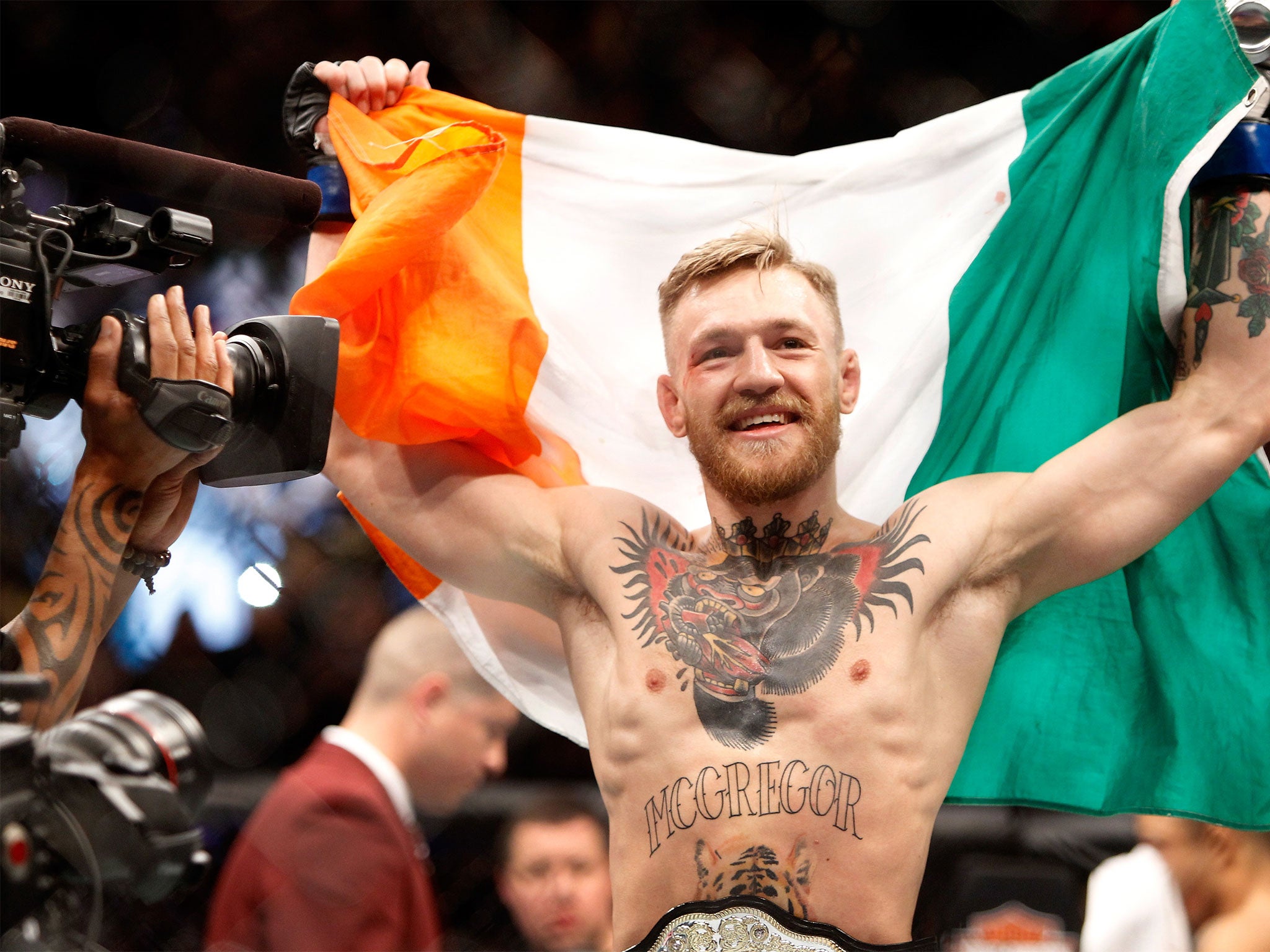
All the while his pseudo-nationalism has been selling Ireland in leprechaun-esque fashion with lines like, “They don’t understand these crazy Irish men looking to take their head clean off. This is what we do; we’ve been doing it for generations. We love to fight,” and, “If one of us goes to war, we all go to war”.
But there's a problem with trying to be constantly controversial – when everything is, inversely nothing is as it becomes normality. There are those who say McGregor is entertaining but by now he's predictable, boring and, at regular intervals, much worse. Just have a listen to some of the things that he has proudly said since making it less than five years ago.
“Kiss them feet Nazi,” he told UFC opponent Dennis Siver, a German of Russian descent and, when pulled up on it, he showed his remorse by saying, “Ich bin ein sowwy. Now about them feet...” “I would invade his favela on horseback and would kill anyone who wasn’t fit to work, but we’re in a new time, so I’ll whoop his ass instead,” he told Brazilian Jose Aldo before their title fight. He said Rafael dos Anjos, who emigrated to America, “is a traitor to his people” and vowed “to behead the American Gringo”. Of his bling he added, “This solid gold pocket watch, three people died making this watch.” Then came this mock fight with references to “dancing monkeys” while telling a black opponent in Floyd Mayweather to “dance for me boy” in the current climate. Jeckyll became Hyde.
There's entertainment, there is cashing in, but there is also nastiness and racism. And if words matter, as they do despite the flaccid defences offered up by those around him, so to do actions.
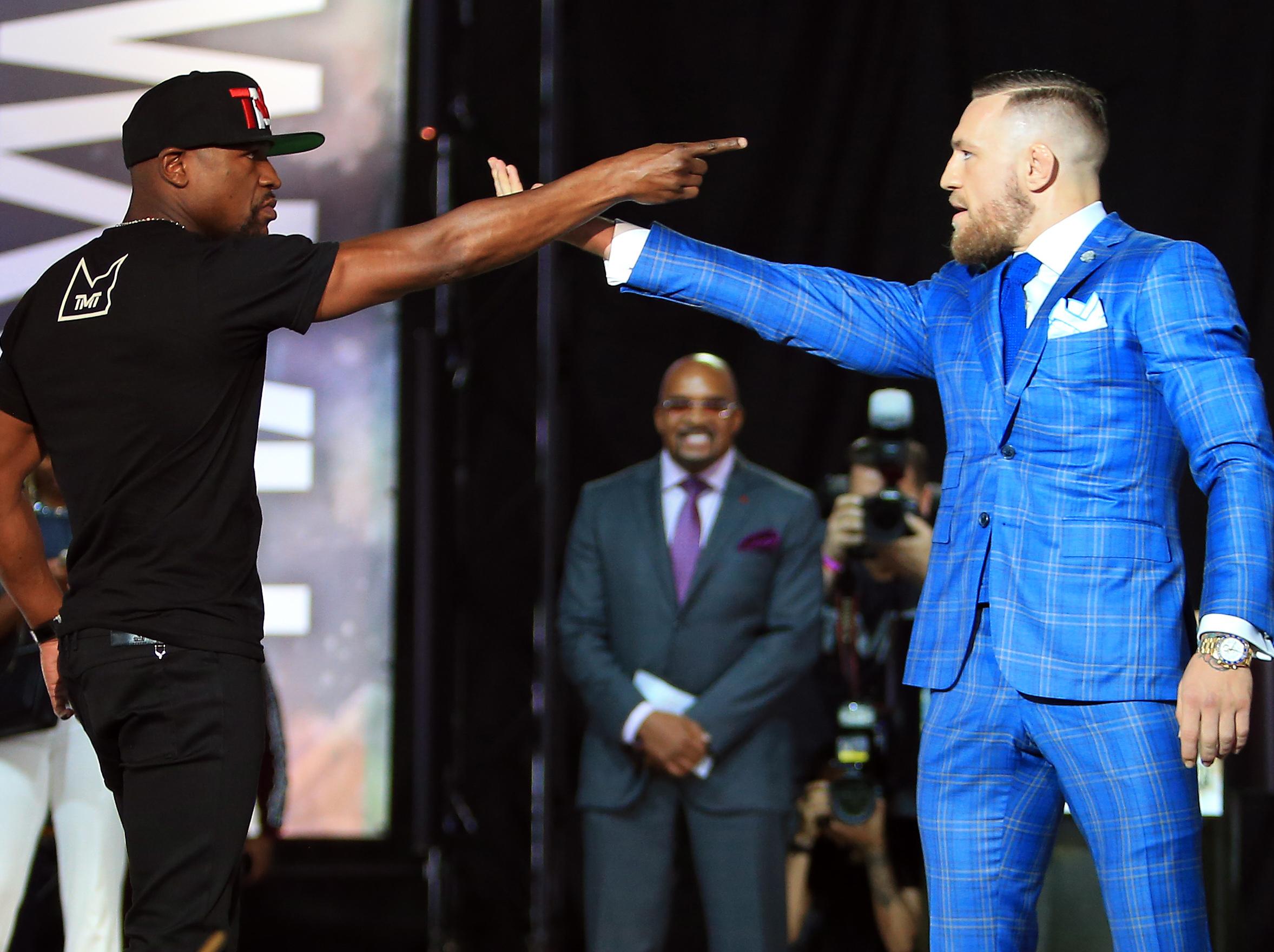
Take his trip to the Grand National this year that surmises him. He showed up at Aintree the worse for wear, before leaving a Liverpool night club the worse for wear with a cut hand, before leaving behind a trashed hotel suite without a care, before boarding a private plane where he looked to be on death's door. However, on his lap for that flight was a bag of cash as if that made everything alright. Meanwhile a luxury car company owner had to tell him “when you own one Conor you can stand on it like Floyd, until then you can lose your deposit for standing on mine”. This after photos emerged of him on the bonnet of a rented Rolls Royce giving the finger.
Video has since emerged, too, supposedly showing him close to sleep in a ditch. More salubrious claims come under internet headlines about women and more, although, beyond photos they've posted with him, there is nothing more to back this up. But he's repeatedly been obnoxious to people on his way up the ladder, staring down at them because of his position as others once did so terribly to him.
Living is no longer about learning. A working class hero was something to be.
***
When the Guardian's Donald McRae went to meet McGregor for an interview in Las Vegas in the summer of 2015, he got what had become the standard treatment. Left waiting in the airport after crossing the planet, the subject eventually showed up in a rented sports car, told him to hop in and proceeded to drive up and down the strip for the duration of their chat, holding up a mask that's never been needed. Given his story that's a great tragedy, but ever since making it he's been trying to sell something else.
More recently, in the lead-up to Saturday, Wright Thompson of ESPN fame was flogged a similar tale. “The city, and its current champion, McGregor, are defined by those limits,” he bizarrely explained of Dublin. “It's a clannish, parochial place. Crossing the wrong street has traditionally been reason enough for an ass-whipping. Men have had to drop dates off at bus stops instead of walking them all the way home.” It sounded like Al Capone and a boot-legging version of Chicago.
However if you can excuse the poetic license, you can't excuse a growing narrative that power-washes away McGregor's more dubious but well-discussed friendships and links within the city. Communities like those McGregor came from have been dragged down by drug pushers, as if a cement block tied to their torso, but rather than step away, that gangster life is part of the image he is desperate to portray. Forget reality, he has become the wanna-be ghetto guy waving wads of cash as if a rapper targeting middle-class kids and their parents' credit cards.
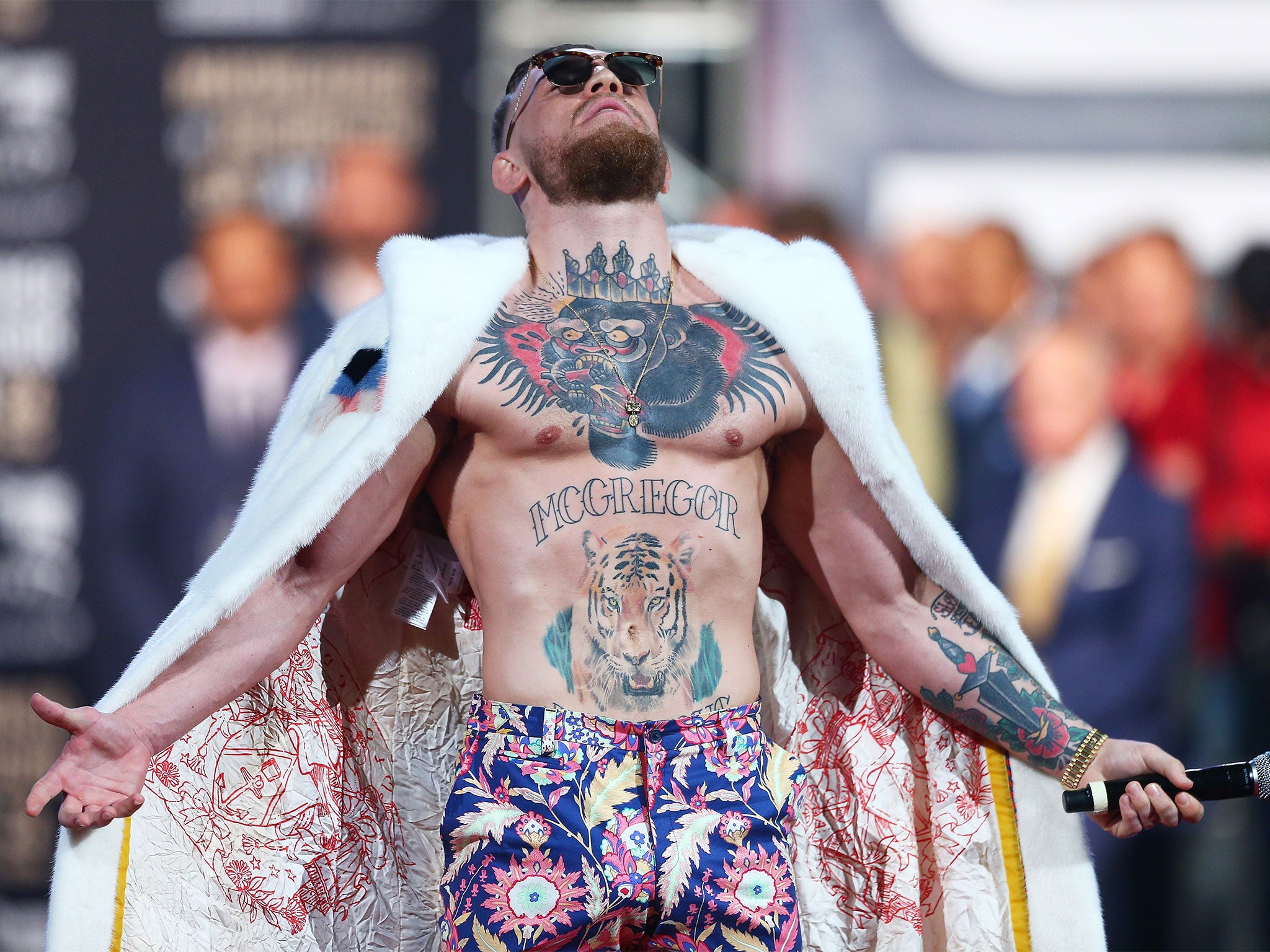
He has a new child of his own now of course. Is older. Wealthier. But clearly none the wiser for this remarkable journey. And like so much else with the new McGregor, there was nothing surprising in that continued devolution. Instead it was another interview he did with ESPN in January 2015 that showed what was to come and what he had so quickly become.
Asked about his love life, he couldn't control his response as the parody had already overtaken him. “I’ve a long term girlfriend,” he boasted. “I don’t know about romance but I like to get down occasionally. I don’t really have a romantic side is what I am saying. If I’m going in, I’m going in for the kill. You won’t catch me walking down the beach holding hands; you will catch me going deep.”
Indeed upon hearing those words it made me think of our own interview.
The Long Mile Road.
McDonald's.
A coffee.
A beat-up phone.
A call to his girlfriend.
A banged-up Peugeot.
The simple and likable desperation for a lift home.
A young man daring to tip-toe towards his dream.
A future where he could have been so much more than just this hollow shell with money.
Join our commenting forum
Join thought-provoking conversations, follow other Independent readers and see their replies
Comments
Bookmark popover
Removed from bookmarks